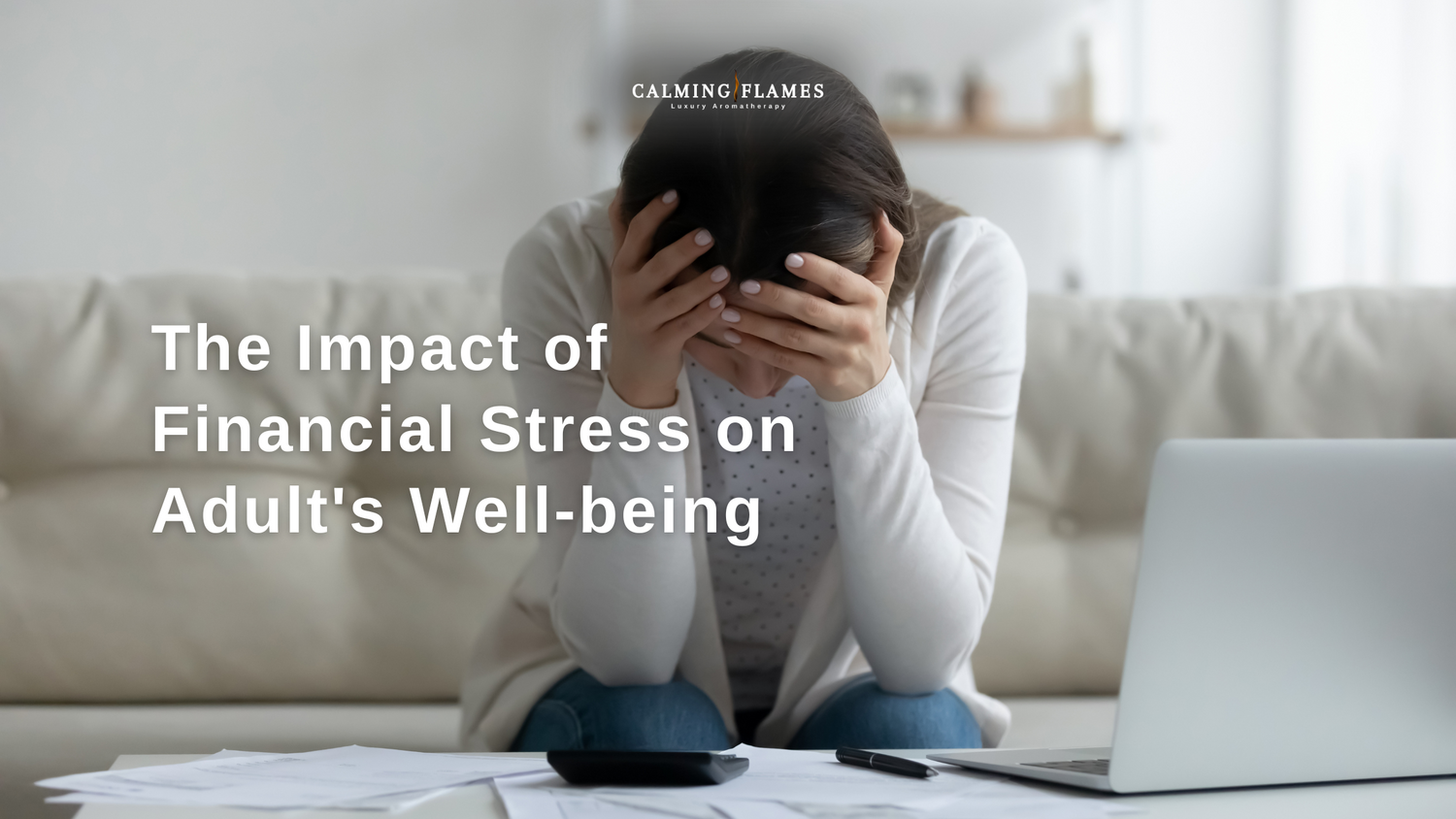Financial stress is a prevalent issue that affects individuals and economies worldwide. Let’s explore the intricate relationship between financial stress and inflation on a global scale, shedding light on the impact of rising prices on individuals' financial well-being.
Adults across the globe are no strangers to financial worries, with various factors contributing to their economic anxieties. From job insecurity to mounting debt levels, there are numerous reasons why individuals experience financial stress in today's world.
One significant factor that exacerbates financial stress is inflation. As prices of goods and services rise, individuals find themselves grappling with reduced purchasing power and increased cost of living. This phenomenon not only impacts individual finances but also has broader implications for the overall economy.
The Global Picture: Half of Adults Struggling with Financial Stress Due to Inflation
Financial stress due to inflation is a prevalent issue affecting a significant portion of the global population. Recent statistics reveal that nearly half of adults worldwide are grappling with financial strain caused by inflationary pressures. The rising cost of living, coupled with stagnant wages in many regions, has exacerbated the situation, leading to heightened concerns about personal finances.
Inflation can have a profound impact on individuals' purchasing power and overall financial well-being. As prices for goods and services continue to rise, consumers find themselves struggling to make ends meet, save for the future, or invest in their long-term goals. This economic phenomenon not only affects day-to-day budgeting but also poses challenges for retirement planning and wealth accumulation.
Surveys conducted on financial stress highlight the real-world implications of inflation on adults across different demographics and socio-economic backgrounds. The data underscores the urgent need for individuals to adopt proactive strategies to navigate these challenging economic conditions effectively.
As global economies grapple with fluctuating inflation rates and economic uncertainties, it becomes crucial for individuals to stay informed about personal finance management techniques and seek professional guidance when needed. By staying vigilant about their financial health and making informed decisions, individuals can better mitigate the impact of inflation on their lives and secure a more stable future.
Diving Deeper: How Inflation Influences Different Aspects of Adult's Lives
Inflation has a significant impact on various aspects of adults' lives, affecting everything from spending habits to saving strategies and overall financial well-being. Understanding how inflation influences these areas can help individuals navigate economic challenges more effectively.
1. Spending Habits: Inflation can lead to a decrease in purchasing power, making everyday goods and services more expensive. This often prompts adults to adjust their spending habits by cutting back on non-essential purchases or seeking out more affordable alternatives. Consumers may also prioritize essential items over luxury goods during times of high inflation.
2. Saving Under Inflation Pressure: Saving money becomes more challenging when inflation erodes the value of cash over time. Adults may need to rethink traditional saving methods and consider investing in assets that offer higher returns to outpace inflation rates. Strategies such as investing in stocks, real estate, or other appreciating assets can help protect savings from losing value due to inflation.
3. Budgeting During Inflation: Budgeting becomes crucial during periods of high inflation as individuals strive to make their money stretch further. Creating a detailed budget that accounts for rising prices and adjusting spending categories accordingly can help adults stay financially stable amidst inflationary pressures. Prioritizing necessities and identifying areas where expenses can be reduced are key components of effective budgeting in an inflationary environment.
4. Coping with Rising Prices: Rising prices due to inflation can strain household finances, requiring adults to find ways to cope with increased costs across various sectors such as housing, food, and transportation. Seeking out discounts, comparison shopping, and negotiating prices are tactics that individuals may employ to mitigate the impact of rising prices on their budgets.
By understanding how inflation influences different aspects of their lives, adults can proactively adapt their financial strategies and decision-making processes to navigate economic challenges effectively. Being mindful of spending habits, reevaluating saving approaches, practicing prudent budgeting techniques, and finding ways to cope with rising prices are essential considerations for managing finances under the influence of inflation.
Coping Strategies: Tips for Managing Financial Stress in an Inflationary Environment
Coping with financial stress during times of inflation can be challenging, but implementing effective strategies can help you navigate through these uncertain times. Here are some tips for managing financial stress in an inflationary environment:
1. **Budget Wisely**: During periods of inflation, it's crucial to review and adjust your budget regularly. Track your expenses, prioritize essential needs over wants, and look for areas where you can cut back to save money.
2. **Build Emergency Savings**: Having a financial cushion can provide peace of mind during inflationary periods. Aim to build an emergency fund that covers at least three to six months' worth of living expenses to help you weather unexpected financial challenges.
3. **Diversify Income Sources**: Explore opportunities to diversify your sources of income to improve your financial resilience. Consider taking on a side hustle, freelancing gigs, or investing in income-generating assets to supplement your primary income.
4. **Stay Informed and Plan Ahead**: Stay informed about economic trends and how they may impact your finances. Planning ahead and being proactive in adjusting your financial strategies can help you stay ahead of potential challenges caused by inflation.
5. **Seek Professional Advice**: If you're feeling overwhelmed by financial stress, consider seeking guidance from a financial advisor or counselor who can provide personalized recommendations based on your specific situation.
By implementing these coping strategies and staying proactive in managing your finances, you can better navigate the challenges posed by inflation and improve your overall financial well-being.
The Road Ahead: Building Financial Literacy and Resilience to Combat Global Financial Stressors
Financial literacy education is crucial in today's world, especially as we navigate through evolving global finance trends post-inflation era. Promoting financial well-being worldwide requires a solid foundation of knowledge and skills to make informed decisions about money management.
By building financial literacy, individuals can develop resilience to combat global financial stressors. Understanding concepts like budgeting, saving, investing, and debt management empowers people to take control of their financial futures.
In a rapidly changing economic landscape, being financially literate is not just an advantage but a necessity. It equips individuals with the tools to navigate uncertainties and make sound financial choices that can lead to long-term stability and prosperity.
As we look ahead, prioritizing financial literacy education on a global scale will be key in fostering economic empowerment and resilience in the face of ongoing financial challenges. By investing in education and resources that promote financial well-being, we can create a more financially secure future for individuals and communities worldwide.
Empowering Adults to Navigate Financial Challenges Amidst Rising Inflation Pressures
In conclusion, navigating financial challenges can be overwhelming, especially in times of rising inflation pressures. It's crucial for adults to prioritize self-care and seek ways to manage their financial stress effectively.
Global financial anxiety is on the rise as individuals grapple with the impact of inflation on their finances. The uncertainty surrounding economic conditions can lead to increased stress about money and future financial stability.
In such challenging times, practicing self-care becomes essential. This may involve creating a budget, seeking professional financial advice, or exploring new income opportunities. Taking small steps towards improving one's financial situation can help alleviate some of the economic anxiety many people are experiencing.
Remember, you're not alone in facing these challenges. By prioritizing self-care and seeking support when needed, individuals can empower themselves to navigate financial difficulties amidst rising inflation pressures.











Leave a comment
All comments are moderated before being published.
This site is protected by reCAPTCHA and the Google Privacy Policy and Terms of Service apply.